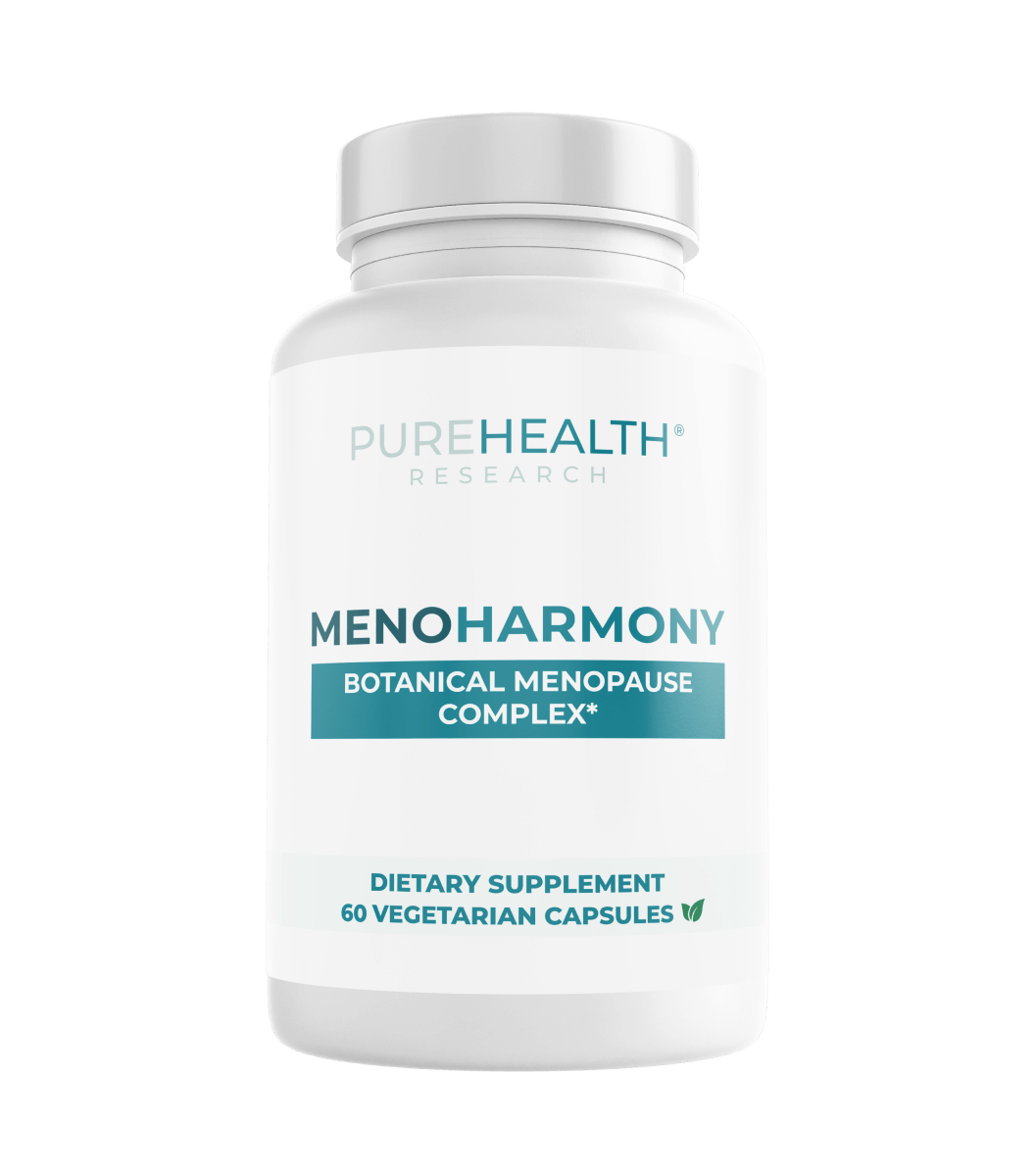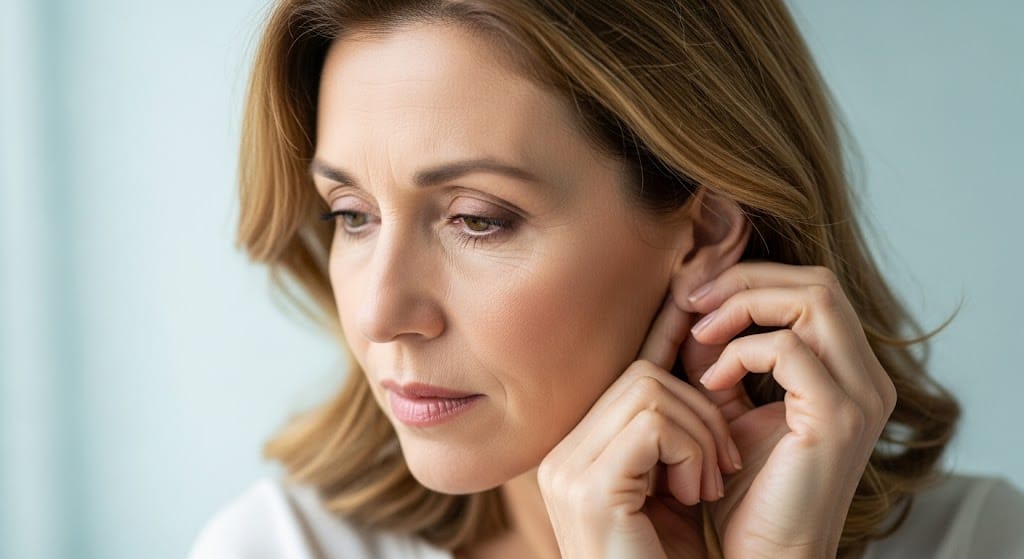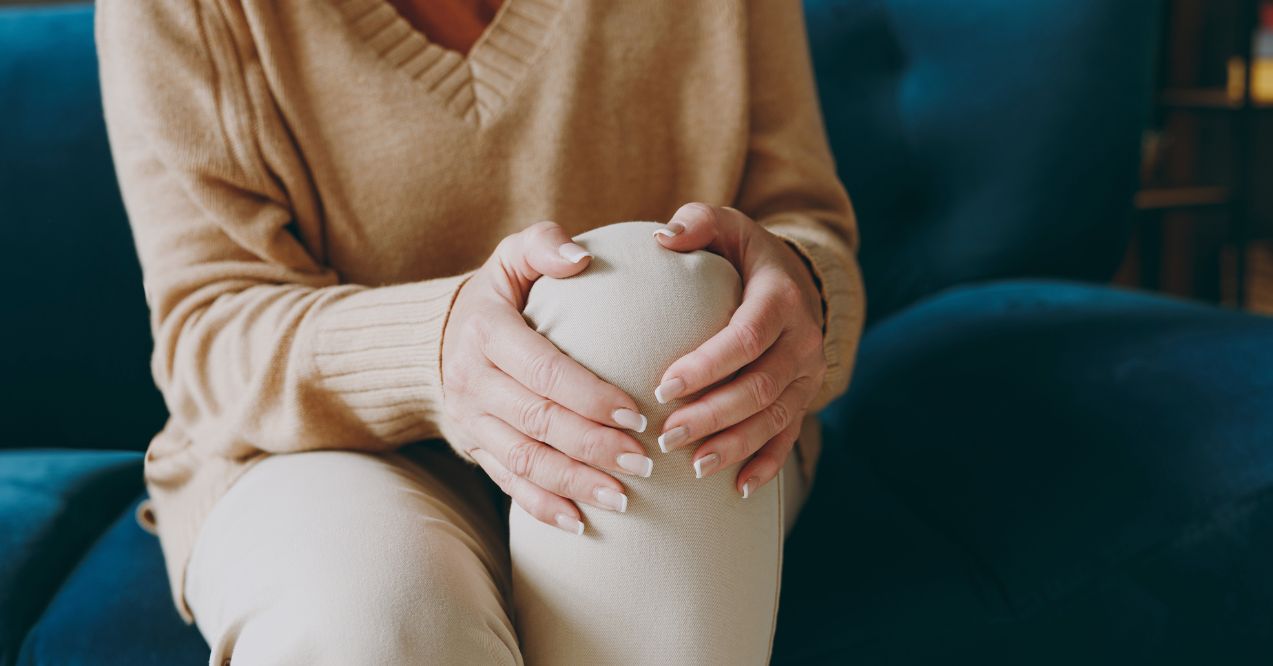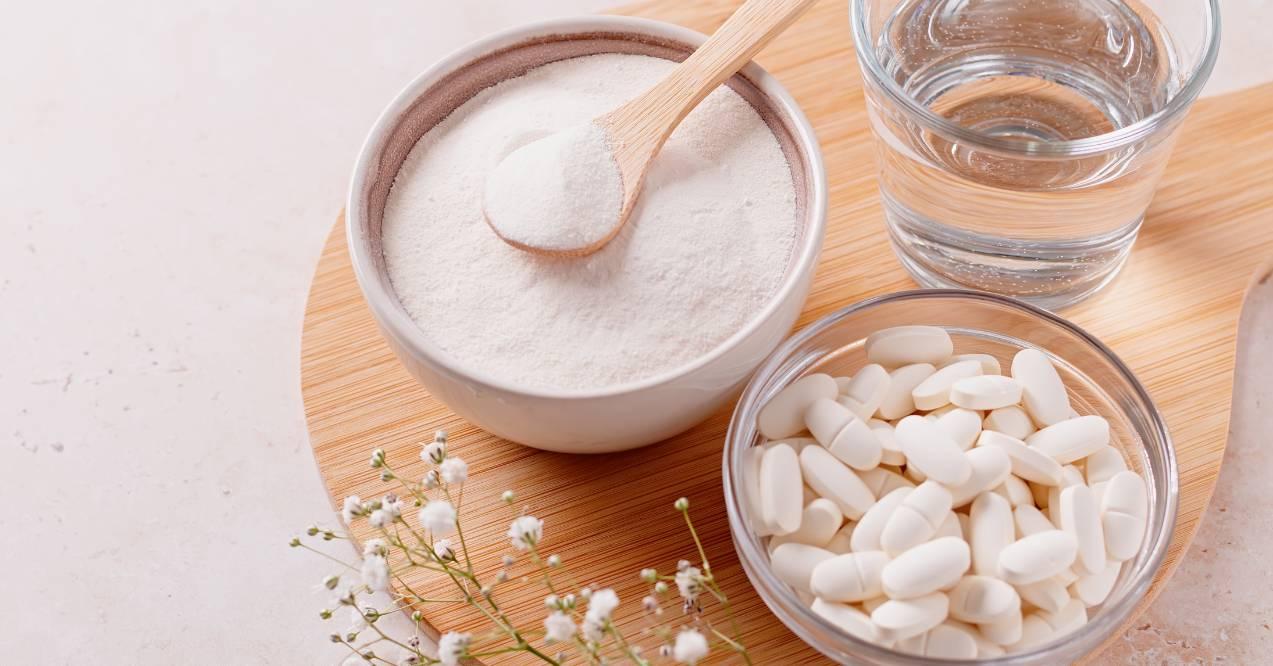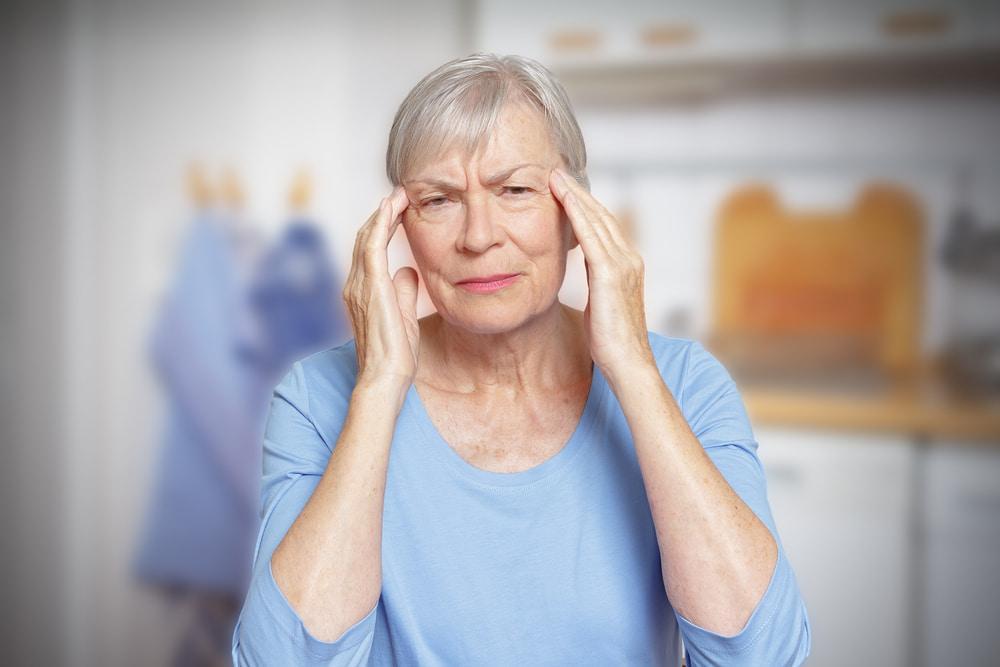Will Joint Pain From Menopause Go Away?
Will joint pain from menopause go away? Learn effective strategies for relief & discover if menopause joint pain is here to stay.
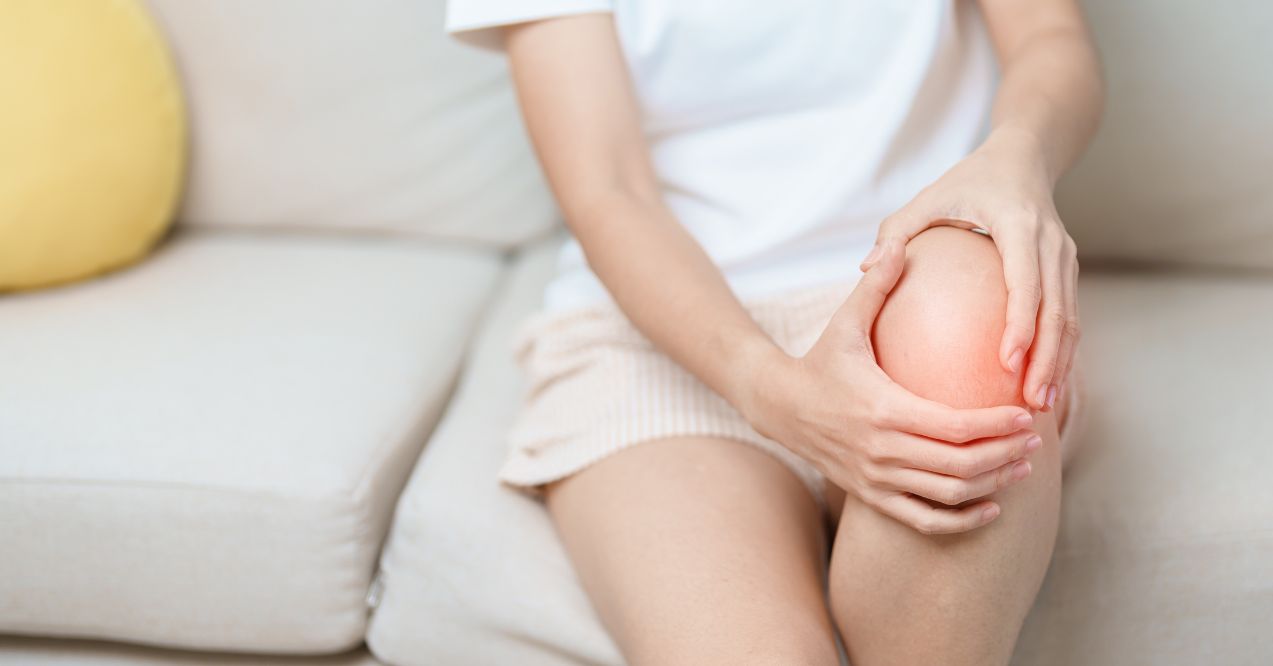

Joint pain is a common, yet often overlooked symptom of menopause. Many women experience aches and stiffness in their joints as they transition through this natural phase of life. Will joint pain from menopause go away? This question lingers in the minds of countless women navigating the complex terrain of menopause.
In this article, we’ll explore the connection between menopause and joint discomfort, discuss potential support options, and provide insights to help you manage this challenging symptom.
Does Menopause Cause Joint Pain?
Menopause and sore joints are closely linked. The hormonal fluctuations characteristic of menopause, particularly the decline in estrogen levels, can significantly impact joint health.
Estrogen plays a crucial role in maintaining joint lubrication, reducing inflammation, and preserving bone density. As estrogen levels decrease, many women experience increased joint stiffness, swelling, and discomfort.
These hormonal changes can affect various joints throughout the body, including the knees, hips, fingers, and shoulders. The resulting discomfort can range from mild stiffness to more severe pain, potentially impacting daily activities and quality of life.
Will Joint Pain From Menopause Go Away?
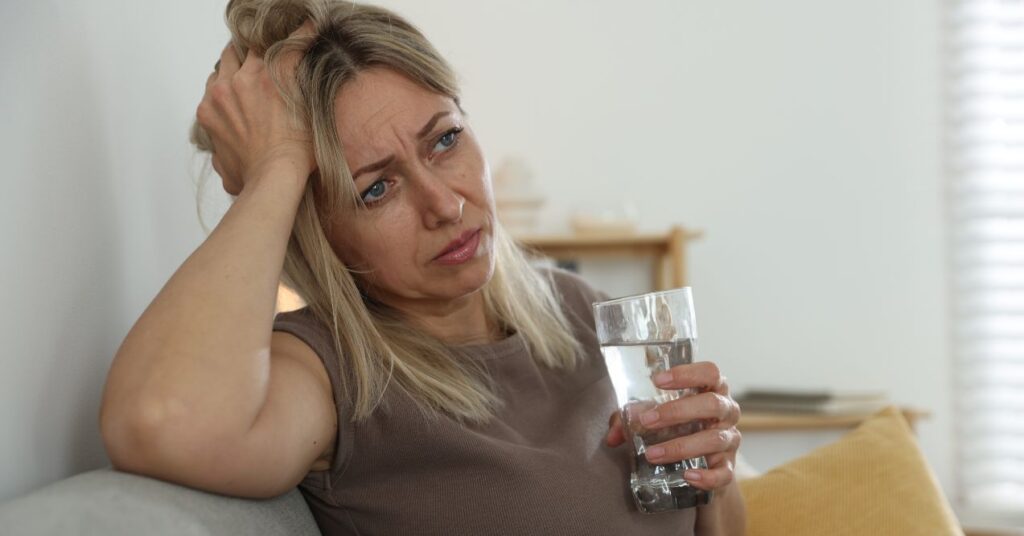
The persistence of joint pain during menopause is a common concern. While some women may experience temporary discomfort that subsides as their bodies adjust to hormonal changes, others may face ongoing challenges.
Factors influencing the longevity of menopause joint pain include:
- Individual hormonal balance
- Overall health and fitness level
- Genetics
- Lifestyle choices
- Pre-existing joint conditions
It’s important to note that while hormonal fluctuations may trigger or exacerbate joint pain, other age-related factors can also contribute to ongoing discomfort. Osteoarthritis, for example, becomes more common as we age and can overlap with menopause-related joint issues.
While joint pain from menopause may not completely disappear for everyone, many women find that their symptoms improve over time. Additionally, various management strategies can help alleviate discomfort and improve joint function.
How to Alleviate Menopause Joint Pain?
1. Exercise Regularly

Regular physical activity is crucial for maintaining joint health during menopause. Low-impact exercises such as swimming, cycling, and yoga may help:
- Improve joint flexibility and range of motion
- Strengthen muscles supporting the joints
- Enhance overall physical fitness
- Promote weight management, reducing stress on joints
Aim for at least 150 minutes of moderate-intensity exercise per week, gradually increasing duration and intensity as your fitness improves.
2. Strengthen Your Core
A strong core provides essential support for your entire body, potentially reducing strain on joints. Incorporate exercises that target your abdominal, back, and pelvic muscles, such as:
- Planks
- Bridges
- Pilates-based movements
A robust core can improve posture, balance, and overall body mechanics, potentially alleviating joint stress and discomfort.
3. Eat More Anti-inflammatory Foods
Diet plays a significant role in managing inflammation and joint health. Focus on incorporating anti-inflammatory foods into your meals, such as:
- Fatty fish rich in omega-3s (salmon, mackerel, sardines)
- Colorful fruits and vegetables (berries, leafy greens, sweet potatoes)
- Nuts and seeds
- Whole grains
- Olive oil
- Turmeric and ginger
- Collagen for Menopause
4. Drink Water

Proper hydration is essential for joint health. Water helps:
- Lubricate joints
- Transport nutrients to cartilage and other tissues
- Flush out toxins that may contribute to inflammation
Aim to drink at least 8 glasses of water per day, adjusting your intake based on activity level and climate
5. Try To Stress Less
Stress can exacerbate joint pain by increasing tension in the body. Implement stress-reduction techniques such as:
- Meditation
- Deep breathing exercises
- Progressive muscle relaxation
- Gentle yoga or tai chi
Managing stress can not only help with joint pain but may also alleviate other menopause symptoms. Some women find that the best supplements for menopause brain fog also help with overall stress management, though individual results may vary.
Alternative Therapies for Joint Pain Relief
Several alternative therapies may provide additional relief for menopause-related joint pain:
- Acupuncture – This traditional Chinese medicine technique may help reduce pain and improve joint function.
- Massage therapy – Regular massages can help relax muscles, improve circulation, and reduce joint stiffness.
- Heat and cold therapy – Alternating between warm and cold treatments can help manage pain and inflammation.
Herbal supplements have gained attention for their potential to alleviate menopause symptoms, including joint pain. Menoharmony, a supplement by PureHealth Research, endorsed by Dr. Holly Lucille, ND, combines several botanical ingredients that may offer relief:
- Red Clover
- Hops
- Angelica gigas
- Cynanchum wilfordii
- Jerusalem Sage
These botanicals work together to potentially alleviate various menopausal symptoms, including joint and muscle aches. While will joint pain from menopause go away is a common question, symptoms may persist for some, but targeted support can help.
For additional support tailored to women’s unique needs, explore supplements designed specifically for women’s health. These products can help address a range of concerns, from hormonal balance to joint discomfort. Click here to discover supplements for women’s health and find the right solution for you.
Conclusion
Menopause joint pain is a common experience for many women, stemming from hormonal changes that affect joint health and function. While the duration and intensity of this discomfort can vary, numerous strategies can help manage and potentially alleviate joint pain during menopause.
So, will joint pain from menopause go away? By incorporating regular exercise, strengthening your core, maintaining a healthy diet, staying hydrated, managing stress, and exploring alternative therapies, you can take proactive steps towards improving your joint health. Everyone’s menopause journey is unique, and finding the right combination of treatments may require some trial and error.
Yes, menopause can cause aching joints. The hormonal changes, particularly the decrease in estrogen levels, can lead to increased inflammation and reduced joint lubrication. This can result in stiffness, pain, and discomfort in various joints throughout the body.
Joint pain during menopause varies among individuals. Some women experience temporary discomfort that improves as their bodies adjust to hormonal changes. For others, joint pain may persist throughout the menopausal transition and beyond. Management strategies can help alleviate symptoms regardless of duration.
Experiencing widespread aches during menopause is not uncommon. Hormonal fluctuations can affect multiple body systems, leading to various discomforts. However, if you’re experiencing severe or persistent pain, it’s important to consult with a healthcare provider to rule out other potential causes.
Sign up for our Healthy Living newsletter!
Advertisement. This site offers health, wellness, fitness and nutritional information and is designed for educational purposes only. You should not rely on this information as a substitute for, nor does it replace, professional medical advice, diagnosis, or treatment. If you have any concerns or questions about your health, you should always consult with a physician or other health-care professional. Do not disregard, avoid or delay obtaining medical or health related advice from your health-care professional because of something you may have read on this site. The use of any information provided on this site is solely at your own risk.
